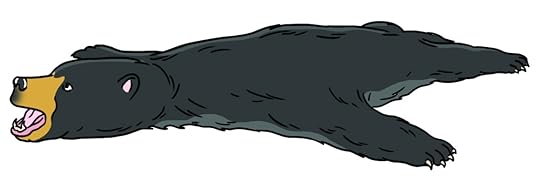The Omnivore’s Dilemma
 MICHAEL POLLANS brilliant book of the same title does a noble job of fusing evolutionary biology with everyday life, but actually the issue goes a great deal deeper than a history of the world in four square meals.
MICHAEL POLLANS brilliant book of the same title does a noble job of fusing evolutionary biology with everyday life, but actually the issue goes a great deal deeper than a history of the world in four square meals.
One of the most profound questions you can pose to a class of curious kids is to ask them to list the biggest differences they can think of between humans and other mammals.
It’s a discussion that leads to all kinds of fascinating cross-curricula insights and it works just as well whether the class is year 1 or A-level.
This very question pops into my mind especially at the moment as my younger daughter, Verity, is limbering up to her History GCSE and together we drilling and killing our knowledge of the build to World War II. What were the causes? Was it the failure of the treaty of Versailles? The Great Depression? Hitler’s charisma? Western attempts at appeasement? The failure of the League of Nations?
What frustrates me most about this process is that one of the most fascinating reasons for the break of WW II from a big history perspective never makes it into the history syllabus because, well, history is history and in our current bonkers system of silo-subject-driven education, history is not fused (as it should be) with biology and psychology.
Humans are different from most other mammals in that they eat meat and veg – we are omnivores. Look around you every day and you will see how the omnivorous human habit has created a species with extra-special potential for causing unrivalled havoc.
Some mammals are herbivorous and their social instinct is herd-like – they follow. The want to be led. They are not aggressive on an individual level, they depend for their survival on being in crowds. Sheep and cows are the most obvious, everyday examples although deer provide a better model of this behaviour pre-domestication – fleet of foot but herd like.
Other mammals are carnivorous – aggressive, usually solitary, unless they need to be in a pack to kill. These are the hunters and killers like lions, tigers, wolves, bears – nature has plenty of stereotypes – take you pick. They all eat meat.
Somehow, probably at roughly the same time as upright walking hominids diverged from our closest living genetic relatives, chimpanzees (perhaps 4 million years ago?), our direct ancestors developed the more flexible habit of being able to at veg and / or meat – depending on what was available at the time. Freely available hands helped, I am sure. Flexibility of food preference was surely a survival advantage.
The devastating consequence is that both herbivorous and carnivorous patterns of behaviour have become intertwined in human genes over the last 3 million years. We like to follow, but we also love to kill. Human nature can best be understood as the inextricably interlinked psychology of herbivore and carnivore – creating a unique, lethal cocktail of insatiable followers and megalomaniac leaders.
Human nature can best be understood as the inextricably interlinked psychology of herbivore and carnivore – creating a unique, lethal cocktail of insatiable followers and megalomaniac leaders
The Germans followed Hitler because they had an inner, primeval instinct to be sheep – a mindset driven by peer pressure, which is far from unique to Germany. The desire to follow and be in a large group is a trigger for human satisfaction and fulfillment throughout history. The same phenomenon helps explain our curious desire even today to kill people we have never met for the sake of satisfying a collective faith or national identity. People do it simply because they are driven by the need to conform to the expectations, aspirations, prejudices and beliefs of the group (the herd) to which they identify. It is deeply ingrained.
And then there are the killers – from the charismatic Alexander, Tamerlane and Genghis Khan, to Napoleon, Stalin and, of course Hitler. Mostly they cut a solitary, lonely picture-gallery of individuals hard-wired to lead – in whatever direction gets the best catch. What powers them is the strength of the following they create. It’s a self-perpetuating omnivorous dilemma where our herbivorous instinct to follow feeds our carnivorous instinct to lead – in a never-ending perpetual loop of violence that erupts like a volcano over time as pressure builds and is released.
I so much wanted to discuss all this with Verity on the sofa this morning as we wrestled with the causes of World War II– but I figured my sideways desire to connect the worlds of biology, psychology and history would not score much on the tabulated mark-sheet of that anonymous examiner who will, for a moment, scrutinise her paper.
But what poverty of opportunity, discussion and knowledge emerges from our inability to connect! Never fear. I shall chat it through with Verity – but after the exams are gone – and, of course, it will be over a hearty meal of meat and two veg…



